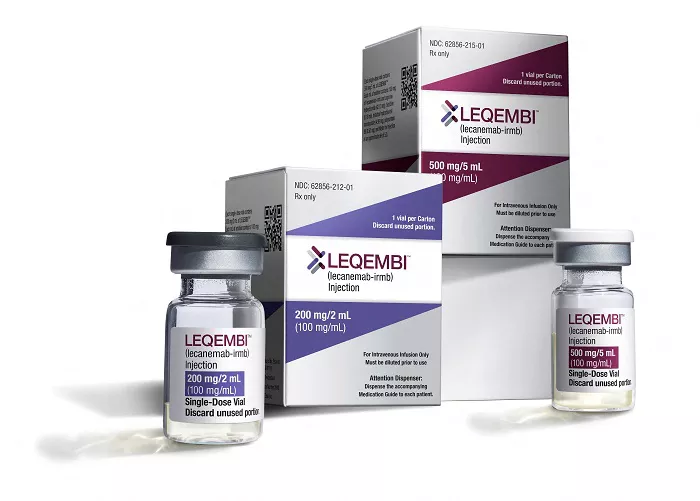Heart disease remains a leading cause of death worldwide, but regular exercise has been consistently shown to reduce the risk of developing this life-threatening condition. Understanding the intricate ways in which physical activity influences heart health is crucial for both individuals and healthcare professionals. This article delves into the various mechanisms through which exercise prevents heart disease, highlighting the physiological, biochemical, and lifestyle factors involved.
The Relationship Between Exercise and Cardiovascular Health
Cardiovascular health is profoundly affected by regular physical activity. The heart, being a muscle, benefits directly from exercise, which strengthens it and improves its efficiency. Regular exercise lowers blood pressure, reduces bad cholesterol levels, increases good cholesterol levels, improves blood circulation, and helps maintain a healthy weight. Collectively, these benefits significantly reduce the risk of heart disease.
Strengthening the Heart Muscle
Exercise acts as a workout for the heart muscle, just as lifting weights strengthens the muscles in the arms and legs. When you exercise, your heart works harder to pump blood, which over time makes it stronger and more efficient. A stronger heart can pump more blood with each beat, reducing the effort needed to circulate blood throughout the body. This improved efficiency decreases the overall workload on the heart, lowering the risk of developing conditions such as hypertrophy, which is the thickening of the heart muscle that can lead to heart disease.
Reducing Blood Pressure
Hypertension, or high blood pressure, is a major risk factor for heart disease. Regular physical activity helps to keep blood pressure in check by improving the elasticity of the blood vessels, which allows them to expand and contract more easily. This reduces the resistance that the heart must overcome to pump blood, thereby lowering blood pressure. Exercise also stimulates the production of nitric oxide, a molecule that helps relax blood vessels, further contributing to lower blood pressure.
Improving Cholesterol Levels
Cholesterol plays a crucial role in heart health. Low-density lipoprotein (LDL) cholesterol, often referred to as “bad” cholesterol, can accumulate on the walls of arteries, forming plaques that narrow and harden them—a condition known as atherosclerosis. High-density lipoprotein (HDL) cholesterol, or “good” cholesterol, helps remove LDL cholesterol from the arteries. Regular physical activity has been shown to increase HDL levels while reducing LDL levels, thereby reducing the risk of plaque formation and subsequent heart disease.
Enhancing Blood Circulation
Exercise improves circulation by promoting the development of new blood vessels and improving the efficiency of existing ones. This enhanced circulation ensures that more oxygen and nutrients reach the heart and other organs. Good circulation is essential for maintaining healthy blood pressure and ensuring that the heart does not have to work excessively to supply the body with blood.
Maintaining a Healthy Weight
Obesity is a significant risk factor for heart disease. Regular exercise helps control weight by burning calories and increasing metabolism. By maintaining a healthy weight, individuals reduce the strain on their heart and lower their risk of developing conditions associated with obesity, such as diabetes and hypertension, both of which are major contributors to heart disease.
Biochemical Mechanisms of Exercise in Preventing Heart Disease
Beyond the obvious physiological benefits, exercise induces a multitude of biochemical changes that contribute to cardiovascular health. These changes occur at the cellular and molecular levels and are critical in reducing the risk of heart disease.
Anti-Inflammatory Effects
Chronic inflammation is a key player in the development of heart disease. Regular exercise has been shown to reduce markers of inflammation in the body, such as C-reactive protein (CRP). Exercise promotes the release of anti-inflammatory cytokines, which help counteract inflammation. Lower levels of inflammation reduce the risk of atherosclerosis and other heart conditions.
Oxidative Stress Reduction
Oxidative stress, caused by an imbalance between free radicals and antioxidants in the body, can damage cells and contribute to heart disease. Exercise enhances the body’s antioxidant defense system, helping to neutralize free radicals and reduce oxidative stress. This protective effect helps maintain the integrity of blood vessels and the heart muscle.
Regulation of Blood Glucose Levels
Diabetes is a major risk factor for heart disease, and managing blood glucose levels is crucial for preventing cardiovascular complications. Exercise increases insulin sensitivity, which helps regulate blood sugar levels more effectively. This improved glucose regulation reduces the risk of developing diabetes-related heart conditions.
Improvement in Endothelial Function
The endothelium is the inner lining of blood vessels, and its proper function is vital for cardiovascular health. Exercise improves endothelial function by increasing the production of nitric oxide, which helps blood vessels relax and expand. Improved endothelial function enhances blood flow and reduces the risk of atherosclerosis and hypertension.
Lifestyle Changes and Behavioral Benefits
Regular exercise promotes a variety of healthy lifestyle changes and behaviors that collectively reduce the risk of heart disease. These changes often include better dietary choices, improved mental health, and reduced stress levels, all of which are crucial for cardiovascular health.
Healthier Dietary Choices
Individuals who exercise regularly are more likely to adopt healthier eating habits. Exercise can improve appetite regulation, making it easier to avoid overeating and choose nutrient-dense foods over high-calorie, low-nutrient options. A balanced diet rich in fruits, vegetables, whole grains, lean proteins, and healthy fats supports heart health and complements the benefits of physical activity.
Mental Health Improvements
Mental health has a significant impact on physical health, including cardiovascular health. Exercise is well-known for its positive effects on mental well-being, reducing symptoms of depression, anxiety, and stress. These mental health benefits are partly due to the release of endorphins, often referred to as “feel-good” hormones, during physical activity. Reduced stress and improved mental health contribute to lower blood pressure and a reduced risk of heart disease.
Stress Reduction
Chronic stress is a major risk factor for heart disease, as it can lead to high blood pressure, inflammation, and unhealthy coping behaviors such as smoking and overeating. Exercise is a powerful stress reliever, helping to reduce the levels of stress hormones such as cortisol. Regular physical activity provides a healthy outlet for managing stress and promoting relaxation.
Improved Sleep Quality
Good sleep is essential for overall health, including heart health. Regular exercise has been shown to improve sleep quality by helping individuals fall asleep more easily and enjoy deeper, more restorative sleep. Better sleep supports cardiovascular health by reducing stress, lowering blood pressure, and promoting overall well-being.
Types of Exercise Beneficial for Heart Health
Different types of exercise offer various benefits for heart health, and a combination of aerobic and anaerobic activities is often recommended for optimal cardiovascular benefits.
Aerobic Exercise
Aerobic exercise, also known as cardio, includes activities such as walking, running, cycling, and swimming. These activities increase heart rate and improve the efficiency of the cardiovascular system. Aerobic exercise is particularly effective at lowering blood pressure, reducing LDL cholesterol, and improving overall heart function.
Resistance Training
Resistance training, or strength training, involves activities such as weight lifting and body-weight exercises. This type of exercise helps build muscle mass and strength, which can improve metabolism and support weight management. Additionally, resistance training has been shown to improve blood pressure and enhance cardiovascular health by promoting better muscle-to-fat ratio.
Flexibility and Balance Exercises
While flexibility and balance exercises such as yoga and Pilates may not have as direct an impact on cardiovascular health as aerobic or resistance training, they contribute to overall physical fitness and well-being. These exercises improve muscle function, reduce the risk of injuries, and promote relaxation, all of which support heart health.
High-Intensity Interval Training (HIIT)
HIIT involves short bursts of intense exercise followed by periods of rest or low-intensity exercise. HIIT has gained popularity for its efficiency and effectiveness in improving cardiovascular health. Studies have shown that HIIT can significantly improve heart function, increase insulin sensitivity, and reduce body fat, making it a powerful tool for preventing heart disease.
Guidelines from Health Organizations
Health organizations such as the American Heart Association (AHA) recommend at least 150 minutes of moderate-intensity aerobic exercise or 75 minutes of vigorous-intensity aerobic exercise per week, combined with moderate- to high-intensity muscle-strengthening activities on at least two days per week. These recommendations provide a balanced approach to achieving optimal heart health.
Starting Slowly and Building Up
For individuals who are new to exercise or have been inactive for a long period, it is important to start slowly and gradually increase the intensity and duration of physical activity. This approach helps prevent injuries and ensures sustainable, long-term engagement in exercise.
Incorporating Exercise into Daily Life
Finding ways to incorporate exercise into daily routines can make it easier to achieve the recommended levels of physical activity. Simple changes such as taking the stairs instead of the elevator, walking or biking to work, and engaging in active hobbies can contribute significantly to overall cardiovascular health.
Monitoring Progress and Adjusting Goals
Regularly monitoring progress and adjusting exercise goals as fitness improves can help maintain motivation and ensure continuous improvement. Tracking physical activity, heart rate, and other health metrics can provide valuable feedback and highlight areas for further development.
Conclusion
Regular exercise is a cornerstone of heart disease prevention, offering a multitude of physiological, biochemical, and lifestyle benefits that collectively enhance cardiovascular health. By strengthening the heart muscle, reducing blood pressure, improving cholesterol levels, enhancing blood circulation, and promoting a healthy weight, exercise directly mitigates key risk factors for heart disease. Additionally, the anti-inflammatory effects, oxidative stress reduction, improved blood glucose regulation, and better endothelial function provided by regular physical activity contribute to its protective effects.
[inline_related_posts title=”You Might Be Interested In” title_align=”left” style=”list” number=”6″ align=”none” ids=”9191,9117,9114″ by=”categories” orderby=”rand” order=”DESC” hide_thumb=”no” thumb_right=”no” views=”no” date=”yes” grid_columns=”2″ post_type=”” tax=””]

































